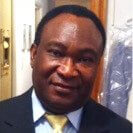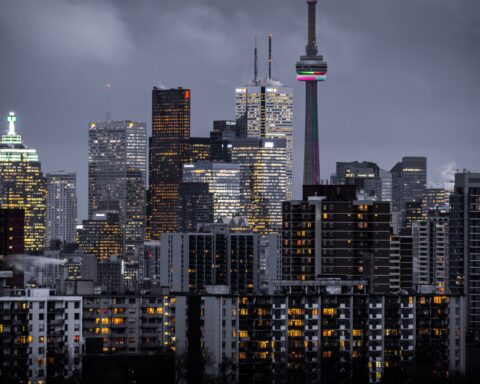Here in Canada, the seemingly peaceful transition of power that is about to take place in Nigeria, as a result of the recent elections, is a win for all. It means oil prices will likely remain as low as they have been for quite some time now.
Nigeria is the fifth largest producer of oil in the world and many analysts were already predicting a rise in crude oil prices should civil war erupt as a result of the vote. But, the violence and ethnic firestorm many fearfully anticipated did not happen when challenger Muhammadu Buhari defeated the incumbent President Goodluck Jonathan this week.
Of the Nigerians living in the Toronto area, many were comforted by the fact that they, “don’t have to worry too much about loved ones we left back home,” noted Peter Obuba, a Toronto-based lawyer. “Can you imagine the type of headache a violent atmosphere would have brought to many of us living here?” he asked.
“[W]e Nigerians in Toronto and Canada can rest easy knowing that our people back home are sound and okay, and that some of us whose investments are in Nigeria will feel safer to continue to invest in our homeland.” – Emelike Ukpabi, Nigerian-Canadian
Most Nigerians living in Canada, with the exception of embassy and consular staff, did not vote in the elections.
Financial investor Emelike Ukpabi is also of the opinion that the successful elections don’t only, “make us look good in Canada as Africans, it also means we Nigerians in Toronto and Canada can rest easy knowing that our people back home are sound and okay, and that some of us whose investments are in Nigeria will feel safer to continue to invest in our homeland,” he stressed, adding, “these are indeed good times.”
Impacting the Continent
While the much-dreaded Nigerian elections have come and gone relatively peacefully, what they actually mean for Africa’s most populous nation and biggest economy, as well as for the entire continent, can be far-reaching.
Many sceptics feared the elections would throw the country into turmoil, as previous ones have, and with good reason. No election has passed off so peacefully as this one, as no incumbent in the country’s history has ever been voted out of office: the incumbent has always won while his challenger and supporters have always found themselves throwing rocks and missiles afterwards – maiming and killing innocent people.
“[The election was] a testament to the maturity of Nigeria’s democracy… a democratic shift.” – Ban Ki Moon, United Nations
In spite of the low turnout (because voters were apprehensive of violence), stakeholders, world leaders and international observers have praised the vote as impressive and a promising event for democracy in Africa. United Nations secretary general Ban Ki Moon described the elections as, “a testament to the maturity of Nigeria’s democracy… a democratic shift.”
Outgoing president Jonathan put it succinctly, announcing that, “Nobody’s ambition is worth the blood of any Nigerian… I thank all Nigerians once again for the great opportunity I was given to lead this country and assure you that I will continue to do my best at the helm of national affairs until the end of my tenure.” In the statement, which was delivered shortly after he conceded defeat publicly, he also noted, “I have conveyed my personal best wishes (in a telephone call) to General Muhammadu Buhari.”
Jonathan’s concession in defeat was not only magnanimous, but an exemplar of pure sophistication and panache, especially in a continent where politicians have always felt it was their birthright to be leaders, blemishing the face of their countries through violence and intolerance. That’s one implication of the Nigerian elections that will bode well for the continent if all politicians take heed.
Another implication of the Nigerian elections is that it highlights how imperative it is to have educated and forthright leaders, known to be selfless and humble.
Jonathan is no Mandela for sure, but his temperament is profound, genuine and didactic as he chooses to lead by example. That is exactly why the recent elections in Nigeria were without bitterness in the end.
The Democratic Republic of the Congo’s Mobutu Sese Seko, Chad’s Hissène Habré, Ivory Coast’s Laurent Gbagbo, Libya’s Col Muammar Gaddafi and Equatorial Guinea’s president-for-life, Teodoro Obiang, to name a few dim-wit tyrants, were (and are) all depraved, vile and abhorrent men who got it into their heads that their countries would be nothing without them, continuously supplying themselves as heads of state and plunging their citizens into the abyss of deprivation.
The erstwhile and late emperor of the Central African Republic, Jean-Bédel Bokassa, for example, was reported by his detractors to feed some of his political enemies to caged lions in an annex to his palace.
But the likes of Nelson Mandela come to mind as shining stars of a new order, though he was advanced in years when he actually reached the political scene. The great Madiba almost single-handedly brought South Africa out of the dark ages of the worst human rights record that apartheid dealt the southern tip of the continent, and led the nation into a modern era where justice and peace became tangibles.
Jonathan is no Mandela for sure, but his temperament is profound, genuine and didactic as he chooses to lead by example. That is exactly why the recent elections in Nigeria were without bitterness in the end.
Fighting Boko Haram
Jonathan’s critics have denounced him as too spineless to go on a full attack of the Boko Haram Jihadists, who essentially are bandits preying on young women and harassing the innocent.
Nigerian-Canadians were in almost total agreement that the ship of state had become too burdensome for Jonathan to steer and that a more militaristic Buhari was the answer to the Boko Haram disturbances.
But Jonathan went soft on the terrorist extremists for years, not because he’s weak, but because he is a thinking man. He preferred to give the militants enough rope to hang themselves.
When he did decide to actually thrash them two months ago – to pave way for the elections to really happen in those once-tense regions – the Islamists succumbed to cowardice; hence many of the areas they once overran from hapless villagers in the northeast of the country fell from their hands without much military prodding.
Yet it was clear that many Nigerians wanted a change at the helm, as did members of the diaspora living in Canada. Nigerian-Canadians were in almost total agreement that the ship of state had become too burdensome for Jonathan to steer and that a more militaristic Buhari was the answer to the Boko Haram disturbances. Little wonder the incumbent lost.
Peter Uduehi is a journalist and publisher of the African World News in Toronto.
Peter Uduehi is a journalist and currently publisher and editor of African World News in Toronto. Versed in African and American politics, he has spent most of his adult years in the USA where he studied journalism and later worked as reporter and news editor for several US media outlets before emigrating to Canada 10 years ago.





